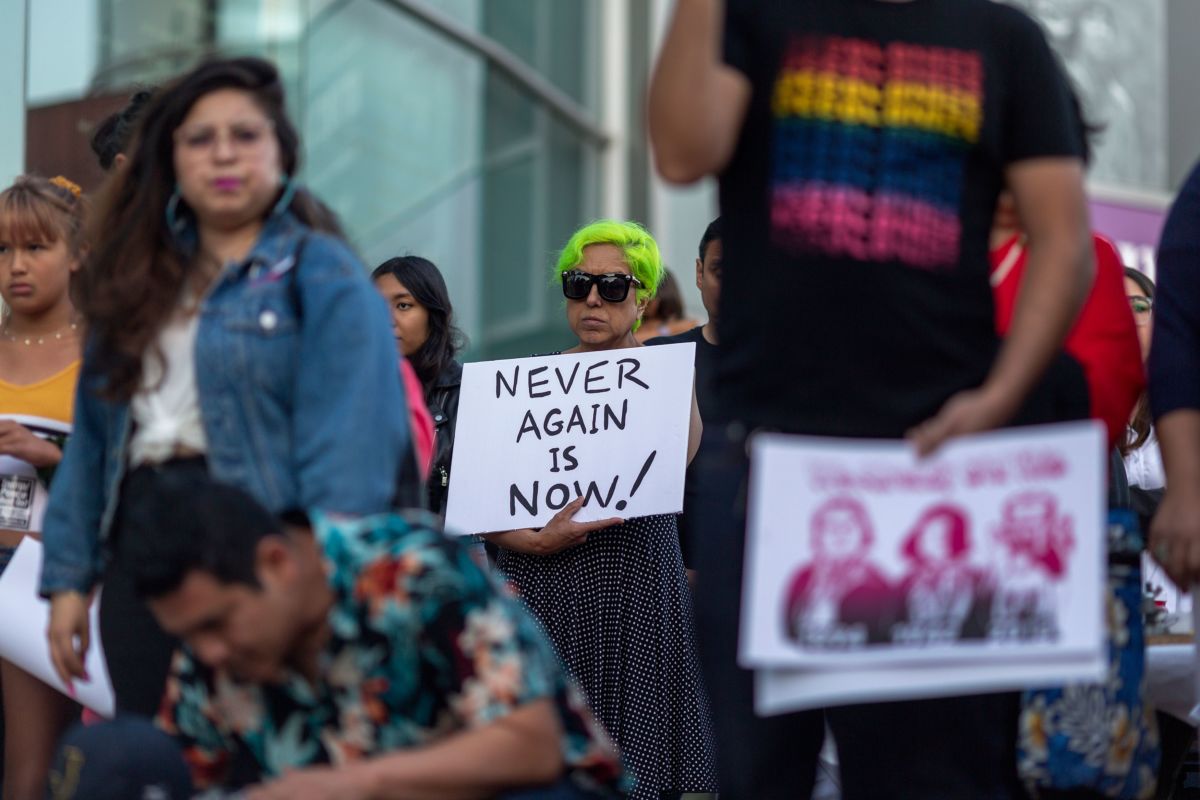Support justice-driven, accurate and transparent news — make a quick donation to Truthout today!
The U.S. held a record 69,550 migrant children in detention facilities in 2019, a Tuesday report from The Associated Press and PBS Frontline found, leading to major psychological and physical harm and lasting trauma.
“No other country held as many immigrant children in detention over the past year as the United States — 69,550,” said AP tech reporter Frank Bajak in a tweet promoting his colleagues’ work. “The physical and emotional scars are profound.”
No other country held as many immigrant children in detention over the past year as the United States _ 69,550. The physical and emotional scars are profound. @chrisshermanap @garanceburke @mendozamartha @frontlinepbs https://t.co/XTW2iBAQ6b
— Frank Bajak (@fbajak) November 12, 2019
The story lays out in excrutiating detail the emotional pain of victims of President Donald Trump’s child separation policy, focusing on, among others, a Honduran father whose three-year-old daughter can no longer look at him or connect with him after being separated at the U.S. border and abused in foster care.
“I think about this trauma staying with her too, because the trauma has remained with me and still hasn’t faded,” the father told AP.
The 3-year-old Honduran girl was taken from her father when immigration officials caught them near the border in Texas in March 2019 and sent her to government-funded foster care. The father had no idea where his daughter was for three panicked weeks. It was another month before a caregiver put her on the phone but the girl, who turned four in government custody, refused to speak, screaming in anger.
“She said that I had left her alone and she was crying,” said her father during an interview with the AP and Frontline at their home in Honduras. “‘I don’t love you Daddy, you left me alone,'” she told him. The father agreed to speak about their case on condition of anonymity for safety reasons.
The AP/Frontline report also includes testimony from a number of teenagers who told their own harrowing tales.
“We can’t allow this cruelty to continue,” Texas immigrant rights group RAICES said on Twitter.
The number of children held by the U.S. in 2019 exceeded that of any other country.
“Donald Trump is a record setting president,” tweeted Rep. Judy Chu (D-Calif.), a frequent critic of the administration’s immigration policies.
In a statement, Families Belong Together chair Jess Morales Rocketto decried the abusive policies.
“The U.S. threw 70,000 children into cages under Donald Trump’s administration, detaining more children than any other country in the world,” said Rocketto.
Taken altogether, the children in U.S. detention this year could fit into a football field.
The Department of Health and Human Services (HHS) Office of Refugee Resettlement is responsible for the welfare of the children.
In a statement, HHS spokesperson Mark Weber said that those concerned over the White House policies “must give credit to the Office of Refugee Resettlement and the shelter network staff for managing a program that was able to rapidly expand and unify the largest number of kids ever, all in an incredibly difficult environment.”
But critics of the White House and HHS pointed out that the treatment of children by the administration as reported prompts questions on abuse and called for Congressional action to end the policy.
“Thousands have been traumatized, ripped away from their families, and at least six children have died preventable deaths in custody — all while the government lawyers argued they weren’t worthy of soap or toothbrushes,” said Families Together’s Rocketto. “They cannot be trusted with the welfare of children and families — Congress must act to end these abuses immediately.”
NBC News reporter Leigh Ann Caldwell wondered if the U.S. would take any responsibility for the grave harm it is doing to the victims of its border policies.
“My question,” tweeted Caldwell. “Does the U.S. provide mental health services for separated families who ask to be deported in order to reunite?”
A terrifying moment. We appeal for your support.
In the last weeks, we have witnessed an authoritarian assault on communities in Minnesota and across the nation.
The need for truthful, grassroots reporting is urgent at this cataclysmic historical moment. Yet, Trump-aligned billionaires and other allies have taken over many legacy media outlets — the culmination of a decades-long campaign to place control of the narrative into the hands of the political right.
We refuse to let Trump’s blatant propaganda machine go unchecked. Untethered to corporate ownership or advertisers, Truthout remains fearless in our reporting and our determination to use journalism as a tool for justice.
But we need your help just to fund our basic expenses. Over 80 percent of Truthout’s funding comes from small individual donations from our community of readers, and over a third of our total budget is supported by recurring monthly donors.
Truthout has launched a fundraiser to add 500 new monthly donors in the next 10 days. Whether you can make a small monthly donation or a larger one-time gift, Truthout only works with your support.
